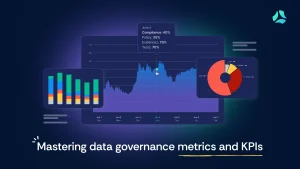
If you’ve ever wondered, what is accounting standards, you’ve come to the right place. Accounting standards are the rules by which financial statements are prepared and reported. This article discusses the differences between GAAP and IAS. As an aspiring accountant, you should know what these guidelines are before you start creating your own financial statements. As a rule, revenue is recognized on an income statement when it’s earned or realized. Revenue must be fully completed, have a reasonable degree of certainty, and be reported in the same accounting period as the costs of producing that revenue.
Basically, accounting standards are rules for measuring, valuing, presenting, and disclosing financial information. They are governed by Accounting Principles, which are the fundamental tenets of accounting. These principles are related to two major goals of accounting: relevance and reliability. They help to remove the concept of different accounting policies and offer clear guidelines to help prepare financial statements. If your financial statements are prepared correctly, the audience will have a clear picture of the company’s performance.
Some disclosures are required under the standard, while others are optional. This is true for certain situations, including related party relationships and intra-group transactions. Disclosures under this standard may conflict with the duty of confidentiality imposed by a statute, component authority, or a company’s management. However, if you’re presenting consolidated financial statements, you’ll have to follow the standard. And if you’re not sure whether your enterprise falls under one of these categories, you’ll want to look at the broader definitions of accounting standards.
Accounting principles are the most fundamental of accounting principles. They are used regularly by accountants and are conservative. They are adopted by the accounting community and are communicated by the Financial Accounting Standards Board (FASB) and the Securities and Exchange Commission. They provide guidelines for accounting treatments, which reduce the risk of error and manipulation of data. You’ll be glad you did! There is no better time to make financial decisions than now. But remember, you can always use this framework to make the best decisions for your company.
The major principles of accounting are Prudence, Substance over form, and Materiality. In addition to this, the standards prescribe the classification and disclosure of certain items in the statement of profit and loss. For example, foreign currency exposures aren’t hedged by derivative instruments or other means. ASsustainability is a major consideration when deciding on an accounting policy. If you’re not sure about whether you should use an accounting standard, make sure to check out the provisions in that Standard.
In the case of depreciation, ASI 2 addresses accounting for machinery spares. It is incorporated in ASI 2 of the Companies (Accounting Standards) Rules, 2006. It is important to understand the difference between the two. This is because ASI 2 addresses a particular issue, while ASI 3 deals with another. In addition to that, ASI 2 focuses on accounting for forward exchange contracts and translation of financial statements.








